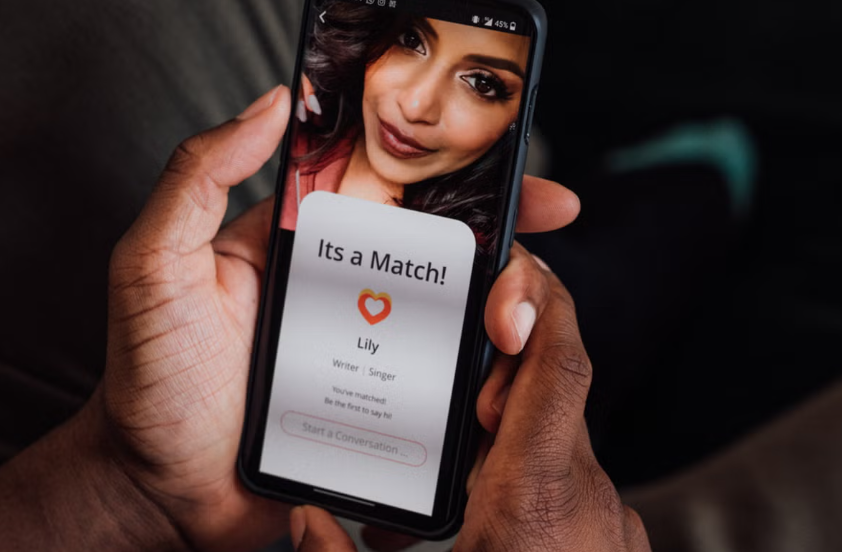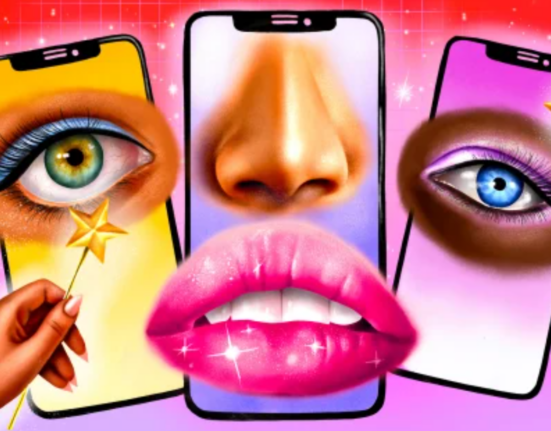Last Updated on September 10, 2025 by Rachel Hall
- Introduction — Re-thinking Dating in a Digital-first World
- The Decline of the Dating App Industry
- Why In-person Dating Feels Fresh Again
- Many Gen Z Struggle With Offline Romance — Here’s Why
- Cultural and Social Shifts Making In-person Dating Harder
- Psychological Barriers in a Hyper-digitised Environment
- Popular In-person Dating Activities Making a Comeback
- Expert-backed Tips for Re-thinking Dating Confidence Offline
- Gen Z Success Stories — From App Fatigue to Real-world Wins
- The Future — Will Dating Apps Adapt to the Comeback?
- Conclusion — Why Re-thinking Dating Matters for Gen Z
- Frequently Asked Questions About In-person Dating for Gen Z
Introduction — Re-thinking Dating in a Digital-first World
Over the last decade, dating apps reshaped romance, normalising swiping and online matchmaking. Yet, dating is making a comeback offline today. More people are seeking authentic face-to-face connections. For many, this marks a welcome return to in-person dating activities such as hobby groups, community events, and even daytime raves.
But the shift isn’t simple. While in-person dating is making headlines, Gen Z is struggling. This generation, often described as the “digital generation”, has grown up in a hyper-digitised environment that many Gen Z are a part of. For them, offline dating can feel intimidating, even unnatural.
Understanding why offline romance is trending again and why dating in person can be challenging for younger people is essential. This article provides a comprehensive look at the in-person dating landscape, its challenges, and solutions for those ready to build more authentic connections.
The Decline of the Dating App Industry
The dating app industry is no longer booming. Several trends reveal cracks in its once-dominant model:
- Plummeting subscriber numbers show that users are increasingly disengaged.
- Rising costs and paywalls alienate younger audiences.
- Endless swiping feels repetitive, leaving interactions disingenuous over time.
- Fake profiles, scams, and safety concerns mean dating apps are seen as less trustworthy.
Although apps still dominate the market, a recent survey indicates that interest is waning. Only a small percentage of Gen Z say they feel satisfied with app-based dating. In fact, Gen Z adults met fewer long-term partners online than millennials. According to reports, only 23 per cent of Gen Z adults met a partner through a dating app. That means the survey indicates that only 23 per cent of these young people found lasting success on apps.
Even when Z was polled in a recent survey, a recent survey expressed a desire for more offline options. Some even voiced the desire to have designated spaces at school or work — including designated spaces for hookups or spaces for hookups and self-love. Clearly, the dating landscape is the relationship-building frontier, shifting away from digital dependence.
Why In-person Dating Feels Fresh Again
For many, moving away from screens feels like a chance at connection. Offline romance eliminates issues like ghosting, catfishing, and performative profiles. Instead, meeting in person allows for:
- Real chemistry, body language, and spontaneity.
- Opportunities to connect beyond the curated world of apps.
- Relief from the pressure-laden focus to find “the one.”
In fact, an article by reporter Catherine Pearson in The New York Times explained that offline romance encourages Gen Z to create meaningful communities. Similarly, reporter Catherine Pearson encourages Gen Z to see dating as less about perfection and more about real interaction.
This means encouraging Gen Z to create and embrace z to create meaningful communities and be open to different kinds of relationships. Such meaningful communities and open models help shift focus towards different kinds of relationships versus rigid expectations.
Many Gen Z Struggle With Offline Romance — Here’s Why
Although in-person dating is making progress, many Gen Z are part of a world where offline dating feels hard or stressful. Here are key reasons why:
- Coming-of-age during the pandemic robbed many of normal social practice. This pandemic and the cultural shift created deep setbacks.
- A cultural shift away from relationships has reduced emphasis on long-term commitments.
- Constant online communication means offline chats feel awkward.
A young woman chimed in at a sex-tech conference with a comment that stopped the discussion: “Check your extrovert privilege.” She captured the truth that for many Gen Z, being offline part of can feel pretty overwhelming. For those whose confidence was shaped by curated online profiles, meeting in real life can feel pretty disingenuous over time.
Cultural and Social Shifts Making In-person Dating Harder
Modern dating trends reveal more than just shyness. Cultural and political forces are shaping how younger generations and boys view romance.
- The rise of misogynistic influencers has left boys and young men more resistant to vulnerability.
- Misogynistic influencers and politicians openly shape a culture where influencers and politicians openly denigrate gender equality is common.
- Even mainstream politicians openly denigrating women fuel distrust and disengagement.
These shifts have a cascading effect on society. They create a cascading effect on younger generations, where we older adults may take for granted the skills needed for offline intimacy. For today’s youth, telling Gen Z to simply “get out there” oversimplifies the problem.
Psychological Barriers in a Hyper-digitised Environment
Fear of rejection carried offline
Having been ghosted repeatedly, Gen Z is struggling with the idea of rejection in face-to-face settings. Offline failure feels riskier than online silence.
Reduced resilience and vulnerability
Studies show less emotionally resilient responses among younger generations and boys. For them, vulnerability as being less than ideal leads to avoiding connection.
Why the hyper-digitised environment many Gen Z live in can feel disingenuous over time
Growing up in a screen-first world has limited opportunities to practise real-world communication. It reinforces the sense that dating in person can be challenging, and sometimes there’s something wrong if offline interactions don’t feel natural.
Popular In-person Dating Activities Making a Comeback
Across the in-person dating landscape, activities are flourishing. These represent a noteworthy force in the in-person revival:
- Dating activities like speed dating are regaining popularity.
- In-person dating activities like speed mixers and casual events attract young professionals.
- Hobby clubs and fitness meetups provide low-pressure alternatives.
A force in the in-person dating movement is “called We Met IRL,” a platform building inclusive offline experiences. This organisation symbolises how the dating landscape, the relationship-building arena, is changing.
Expert-backed Tips for Re-thinking Dating Confidence Offline
Preparation before events
Experts suggest planning topics and lowering expectations. This helps reduce the challenges of coming-of-age anxieties.
Small, micro-conversations
Building in-person skills starts with everyday interactions. Simple gestures break down barriers and show that you’re not alone in your nervousness.
Therapy and coaching
Counsellors often advise clients to reframe how they view social settings, to view and feel about uncertainty not as fear but as an opportunity for growth. Reframing your vulnerability means seeing it less about your ingrained tendencies, and more about tendencies and more an opportunity for development.
As one expert put it, your opportunity to reflect on yourself as a social being is one of the most powerful transformations possible.
Gen Z Success Stories — From App Fatigue to Real-world Wins
Despite challenges, there are many success stories. One student shared how joining a local running club helped them overcome shyness. Another explained how volunteering built confidence and led to romance. These examples show that while dating in person can be challenging, it can also be rewarding.
Even if there are fewer good catches than expected, there are still plenty of opportunities. Over time, offline dating becomes less hard or stressful, and instead offers the resource we need to form real human bonds.
The Future — Will Dating Apps Adapt to the Comeback?
The dating app industry is unlikely to disappear. Instead, it may adapt to the making a comeback and Gen Z trend. Platforms are experimenting with hybrid models. For example, Hinge encourages users to meet through events, while “called We Met IRL” is pioneering offline-first dating.
Still, at least in the United States, the united states where a recent survey found, offline options are more appealing. Indeed, states where a recent survey showed Gen Z prefer authenticity. As a result, making things worse for traditional apps may mean long-term decline.
Conclusion — Why Re-thinking Dating Matters for Gen Z
It is clear that dating is making a comeback offline, and while in-person dating is making connections easier for some, Gen Z is struggling. The hyper-digitised environment many Gen Z live has left them cautious and shy, but with effort and practice, success is possible.
Offline dating should not be feared. It represents an opportunity for growth, for building resilience, and for meaningful relationships. By re-thinking dating and embracing vulnerability, this generation can find lasting love — beyond screens and swipes.
Frequently Asked Questions About In-person Dating for Gen Z
Why are dating apps losing popularity among many Gen Z?
Because they feel disingenuous over time and lack authenticity.
How can Gen Z build in-person skills?
Start small, practise micro-conversations, and seek therapy if needed.
What in-person dating activities, like speed dating, are popular now?
Speed dating, mixers, hobby groups, and fitness meetups.

Rachel Hall, M.A., completed her education in English at the University of Pennsylvania and received her master’s degree in family therapy from Northern Washington University. She has been actively involved in the treatment of anxiety disorders, depression, OCD, and coping with life changes and traumatic events for both families and individual clients for over a decade. Her areas of expertise include narrative therapy, cognitive behavioral therapy, and therapy for traumatic cases. In addition, Rachel conducts workshops focusing on the psychology of positive thinking and coping skills for both parents and teens. She has also authored numerous articles on the topics of mental health, stress, family dynamics and parenting.








Leave feedback about this